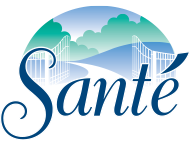
However, even being part of a sober living program can feel like a huge change from controlled and scheduled inpatient care—like a residential program, for example. People who need to be in sober living programs often struggle with the temptation to relapse, too much independence too soon, and a lack of a social support system.
If you’re looking for a dual diagnosis rehab center with varying levels of treatment and sober living programs, contact Santé Center for Healing online or call 866.238.3154 and learn about our addiction treatment services in Texas.
What Is a Sober Living Program?
Sober living homes are similar to, but not the same as, halfway houses. Both provide substance-free and sober living environments for people in recovery. Halfway houses are usually part of addiction treatment programs. For continuing care after addiction treatment programs, there are sober living homes. These recovery residence programs provide a transitional living space between treatment centers and the world outside.
Residents of sober living homes are under medical and staff supervision, and they share the goal of being fully independent in the world outside after proving that their recovery path is stable. They practice complete autonomy while their peers and the home’s staff keep them accountable.
Participants often stay for at least 90 days. However, most become residents for about six to nine months before going fully independent. Some may even stay for a year or longer.
Most sober living programs include:
- A house manager – This person will check in with residents daily.
- Guidelines and requirements – These are to maintain a desired atmosphere and a desired recovery behavior among the residents. However, it’s largely up to residents to stay compliant on their own.
- A community – Everyone in a sober living home is going through similar challenges, and the understanding community created in sober living programs is a very beneficial form of support.
Many sober living programs offer additional support services like helping residents apply for jobs or teaching them financial literacy.
How Does a Sober Living Program Help Drug Addiction Treatment?
First of all, would-be residents of any sober living home must detox and go through withdrawal symptoms. They must be working on long-term sobriety. Most sober living programs are designed to keep residents on the path to recovery by maintaining their sobriety and helping residents get used to independent life.
Sober living homes prevent residents from engaging in or substituting addictions. Common requirements for sober living program participants include:
- Going to work, school, or an outpatient program
- General acceptance by the other participants
- Having and completing household duties
- No alcohol, drugs, violence, or overnight guests
- No sexual contact or misbehavior between participants
- Participation in support group meetings
- Random alcohol and drug screenings
- Timely payment of dues, which includes rent
Failure to follow any of the rules can result in restricted living or eviction. Some zero-tolerance sober living homes will evict residents in violation of any requirement.
Do You Need a Sober Living Program?
Sober living programs are for people who:
- Are transitioning from an inpatient or intensive outpatient program
- Do not have alcohol or drugs currently in their system
- Need to be held accountable in their path to recovery
- Are working towards self-sufficiency and sobriety
Becoming a resident of a sober living home isn’t for everyone, but it can help people stay sober and get ready for when they eventually live alone.
Learn About the Sober Living Program at Santé Center for Healing
If you’re looking for a drug rehab center with a sober living program in Texas, contact Santé Center for Healing online or call 866.238.3154 to find out more about our detox, residential, and outpatient treatment programs.
